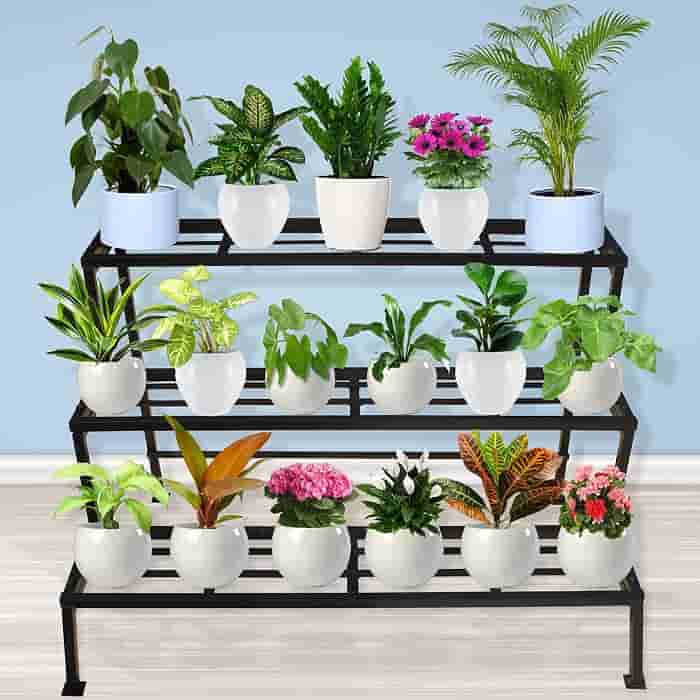Watering your garden plants can be a bit challenging. Too little water and your plants will be harmed; too much water is bad news for root rot. Finding the right balance helps your plants grow healthy, and in this blog, we’ll dive into simple tips on how not to overwater your plants.
Know Your Plants’ Needs
Different plants need different amounts of water. Some plants prefer dry soil, like succulents. Others, like ferns, prefer moist surroundings. Therefore, it is essential to know your plants’ requirements. Read the care instructions for your plants. It will give you an idea of how much water they will need.
Water Deeply, Not Frequently
One of the most common mistakes is frequent watering. However, deep watering is much more effective. Deep watering refers to water reaching the roots of the plant. This will help in creating a strong root system in the plant. Shallow watering wets only the surface and might weaken the roots. Water your plants deeply once or twice a week depending on the weather conditions.
Water in the Morning
The best time for watering your garden is early in the morning. This way, the soil will have some time to cool down; besides, plants are likely to absorb the water at this hour. Moreover, it decreases the possibility of fungal diseases. When water in the evening, the soil remains moist all night, which becomes the best place for fungi.
Use the Right Tools
A watering can or hose with a spray nozzle helps control the flow of water. A watering can with a long spout will allow you to reach the bases of plants without splashing. A hose with a nozzle can be adjusted to deliver a gentle shower. Using a soaker hose can also give your plants’ roots an even amount of moisture.
Check the Soil Moisture
Check the moisture in the soil. You check the soil moisture by inserting a finger two inches deep into the earth. When it is already dry, you know to water it. When moist, you should wait. You can also make use of a soil moisture meter for a more precise read. However, it can guide you toward knowing the exact moment your plants need to be watered.
Consider Weather Conditions
The weather also has a lot to do with how much water your plants need. On hot, dry days, your plants may need extra water. On cooler or rainy days, they will need less. Additionally, during the growing season, plants usually require more water than in the dormant season. So, adjust your watering schedule based on the climate and weather forecast.
Mulch Your Plants
Mulching your plants will help retain moisture in the soil. Mulch serves as a barrier that prevents water from evaporating too quickly. Moreover, it keeps the soil temperature stable, hence safeguarding the plant roots. Use organic materials such as wood chips, leaves, or straw as mulch. Spread a 2- to 3-inch layer around your plants for the best results.
Improve Drainage
Good drainage is a must for healthy roots of plants. If your soil does not drain well, water will collect around the roots. This causes root rot. So, make sure your garden soil is well-drained. You can enhance drainage by adding compost or sand to heavy soils. Additionally, avoid planting in areas where water tends to collect.
Watering Techniques for Pots and Containers
Plants in pots or containers may need more frequent watering because they dry faster than the ground. So water your potted plants once the top inch of soil is dry. Make sure the container has drainage holes so excess water can escape, thereby preventing root rot. Use self-watering pots if you tend to stay out most of the time.
Avoid Overhead Watering
Overhead watering can get the leaves of your plants wet, which encourages diseases. Water the base of the plants where the roots are. Direct water onto the soil to keep the foliage dry. This also makes sure that the water is reaching the roots, which is where it is most needed.
Observe Your Plants Regularly
The final method of avoiding overwatering is through observation of your plants. If the plants appear wilted and yellowed, it’s probably a sign of too much water. However, when they look dry or when their tips have turned brown, then they need more water. So, observe your plants all the time. Additionally, with constant observation, the frequency of watering will surely adjust to the appropriate amount for it.
Conclusion
This is one of the most basic skills every gardener needs to know-how to water garden plants. You know your plants’ needs, you water them deep, and check the moisture in the soil, but using the right tools and mulching your plants can make all the difference. If you seek quality plants, you might want to check out the best plant nursery in Indore or visit an online plant nursery in Indore.
Therefore,if you’re looking to choose from a wide variety, go to the biggest nursery in Indore. The above tips will help you keep your plants healthy and avoid the common overwatering problem. Happy gardening!










Recent Comments